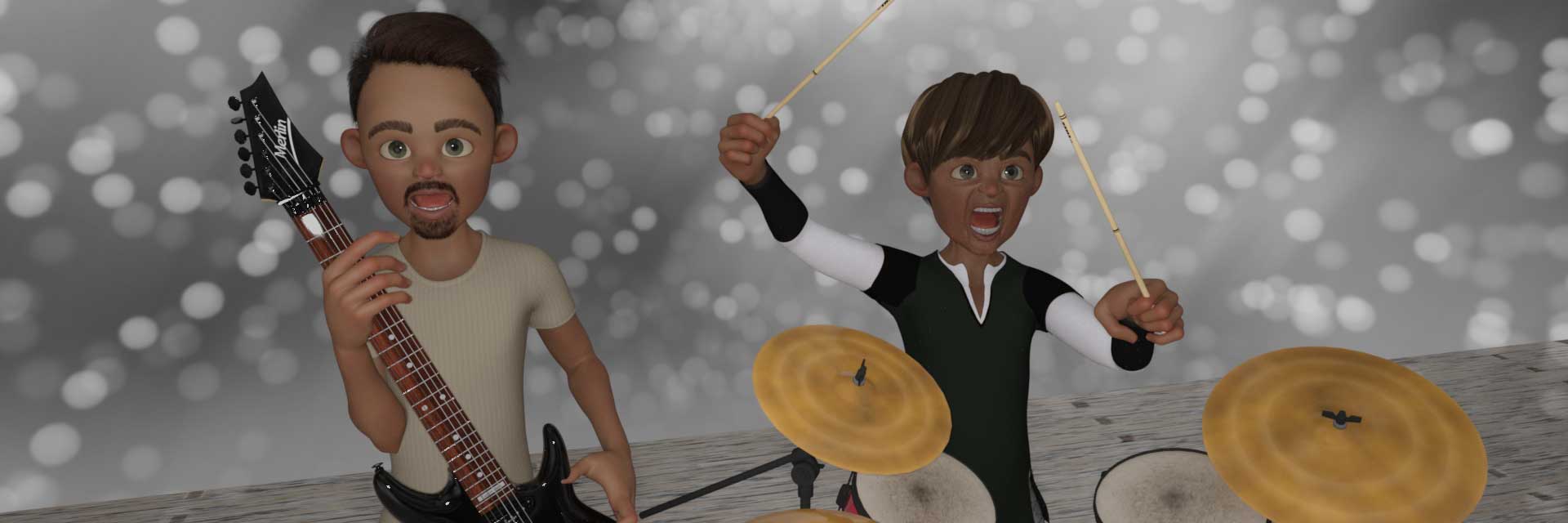Baroque - possibly the most important music genre ever
Baroque music is one of the most influential genres of music that has ever existed. It holds a special place in the hearts and minds of many people, and its influence can still be felt today on everything from modern pop songs to classical symphonies. If you listen carefully to almost any song released from 2012 onward, you’ll hear Baroque influences. So what exactly is Baroque music, and why is it so important? Let’s take a look…
What is Baroque Music?
First, let’s clear up what exactly Baroque music is. The term “Baroque music” is used to describe a wide variety of genres, so it’s important to understand what the term actually means. The Baroque era is a style of music that was common during the 16th and 17th centuries, and was the predecessor to the later Classical period. As such, Baroque music is characterized by highly emotive melodies and a great emphasis on sentiment and expression. Baroque music is often used to describe any piece of music that includes the following:
- A high degree of emotional intensity and expression.
- An overall sense of drama and urgency.
- A focus on melody, harmony, and rhythm,
- A lack of instrumentation that was typical of the Renaissance period.
Why is Baroque Music Important?
At first glance, Baroque music may seem like just another genre of music that was popular in the past. However, the fact that Baroque music is still relevant and well loved today shows its true significance. Baroque music is important because it was responsible for changing the course of history. Before the emergence of Baroque music, there was very little change in the way people wrote and listened to music. The advent of Baroque music marked the start of a new era in music that saw an explosion in the types of music available.
As well as changing the music world, Baroque music changed how people used to express themselves. Before the Baroque era, music was mainly used for religious and royal functions. But with the advent of Baroque music, people began to use music to convey their deepest thoughts and feelings.
Who Were the Greatest Baroque Composers?
- Johann Sebastian Bach - The “Prince of Baroque Composers”, Johann Sebastian Bach is arguably the greatest composer who ever lived. Bach revolutionized the way people wrote music, and many of his techniques are still used by composers today. Bach’s compositions have a dramatic intensity that no one had ever seen before. He used a vast array of techniques, including complex harmonies, fugues, and canons.
Bach wrote hundreds of pieces of music, including concertos, suites, sonatas, cantatas, and a Magnificat. - Antonio Vivaldi - Antonio Vivaldi is mostly known for his violin concertos and The Four Seasons, a piece that is still performed and loved by many people today. Vivaldi was a prolific composer, and many of his compositions are still played by classical orchestras today. Vivaldi’s music is highly emotive and intense, and is often described as Baroque pop.
Although Vivaldi was undoubtedly a genius, he had a love-hate relationship with the Church. He was constantly getting into trouble for his impulsive and impatient nature. - Claude Debussy - Claude Debussy was a French composer who is widely regarded as the father of modern classical music. His music was incredibly influential, and many of his compositions are still played by orchestras around the world. Debussy’s compositions are complex, beautiful, and awe-inspiring. Many of his pieces have become iconic symbols of France, and his most famous work, Clair de Lune, is considered to be one of the most beautiful pieces of music ever written.
What Defines Baroque Music?
As we’ve seen, Baroque music was a very emotionally intense style of music. This emotion was conveyed through the melody, harmony, rhythm, and instrumentation. Let’s take a look at each of these elements in more detail.
Let’s begin with melody. The melody of a baroque composition is complex, ornate, and extremely catchy. It often includes wide leaps between different pitches and frequent use of trills.
The harmony in a baroque composition is generally simple and straightforward, with very little use of dissonance. This allows the melody to be clearly heard and understood.
The rhythm of a baroque composition is very energetic, and often includes irregular and unexpected rhythms that add to the drama of the piece.
How do you Listen to Baroque Music?
Baroque music is often loud, dramatic, and fast-paced, and it can be a bit jarring to modern listeners. But if you listen to Baroque music with an open mind, and you try to forget that you are listening to “old” music, you will discover something beautiful. Baroque music is incredibly varied, and each piece is different from one another. There are many different instruments featured in Baroque music, and the music can be anything from loud and orchestral to soft and delicate.
Now that we know what defines baroque music, we can start listening to some of the most famous pieces ever written. Here are a few of the best baroque compositions to listen to:
- Brandenburg Concertos - These are amongst the most famous works of Johann Sebastian Bach, and are often described as the “Magna Carta of Baroque Music”. They were originally written for the Margrave of Brandenburg as a gift. Baroque music was greatly influenced by the rise of the Enlightenment, and the Brandenburg Concertos are a perfect example of that.
- Mozart's Symphony No. 40 - This is an excellent example of a late Baroque composition. It is a masterpiece of drama and emotion, and is one of the most famous pieces of music ever written.
- Pachelbel's Canon in D - This is easily the most famous of Pachelbel's compositions. It is a beautiful, haunting piece of music, and is still a firm favourite of concert hall audiences.
Final Words
Baroque music with it's dramatic melodies, layered harmonies, and straightforward rhythms has stood the test of time, and is still loved today. If you’ve ever wondered what Baroque music sounds like, now is your chance to find out. Explore some of the most famous pieces of Baroque music, and discover for yourself what makes this genre so special.

